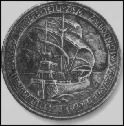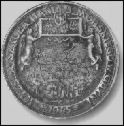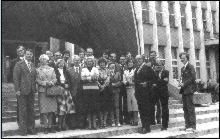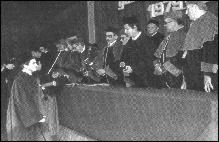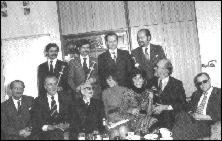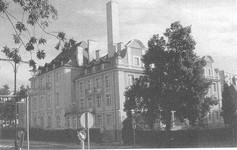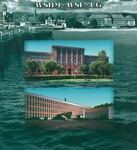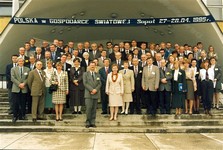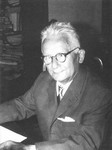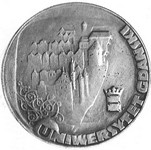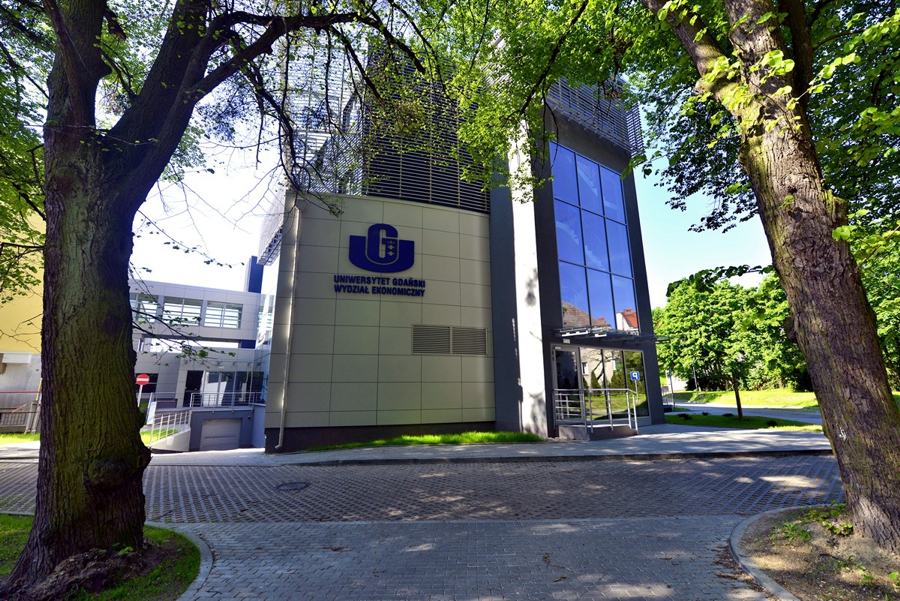- About Us
- History of Faculty
- Authorities
- Faculty Council Resolutions
- Organizational structure
- Staff A-Z
- University job recruitment
- DigiMates
- Rankings
- Our location
- Olympics and competitions
- News
History of Faculty
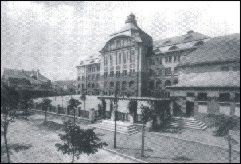 The Faculty of Economics is continuing the tradition of the Sopot centre of economic studies which descended from the Maritime Institute which was created in 1942 in Warsaw as a part of the Secret University of Western Lands.
The Faculty of Economics is continuing the tradition of the Sopot centre of economic studies which descended from the Maritime Institute which was created in 1942 in Warsaw as a part of the Secret University of Western Lands.
 The regaining of the access to the Baltic Sea by Poland in March 1945, still before the end of WWII, mustered the energies to realize the idea of bringing into life a higher school on the Gdansk Coast which would specialize in the issues of the maritime trade.
The regaining of the access to the Baltic Sea by Poland in March 1945, still before the end of WWII, mustered the energies to realize the idea of bringing into life a higher school on the Gdansk Coast which would specialize in the issues of the maritime trade.
Fervour of the organization spread to both the professors and the students of the former Maritime Institute at the Secret University of Western Lands who survived the horrors of war.
As early as March and April 1945, the first professors: Wladyslaw Kowalenko, Tadeusz Ocioszynski, Boleslaw Kasprowicz, Walenty Szweda and the most active students: Jerzy Raminger, Jerzy Wesolowski, Stefan Zumbach arrived together with the first operational groups that organized social and economic life on the Gdansk Coast.
Commemorative medal:
Averse – The Maritime Institute at the Secret University of Western Lands in Warsaw 1942-1944,
Reverse – The Higher School of the Maritime Trade in Gdynia
 Various endeavours led to the obtaining of the first affirmative decisions of the contemporary authorities. On 8 September 1945 The Ministry of Education charged assistant professor Wladyslaw Kowalenko with a task of organizing a higher economic school in Gdynia. The programmatic works were leading in the first period to the establishment of a higher school that would educate certificated economists (BA) in a three year cycle, mainly in the evening classes.
Various endeavours led to the obtaining of the first affirmative decisions of the contemporary authorities. On 8 September 1945 The Ministry of Education charged assistant professor Wladyslaw Kowalenko with a task of organizing a higher economic school in Gdynia. The programmatic works were leading in the first period to the establishment of a higher school that would educate certificated economists (BA) in a three year cycle, mainly in the evening classes.
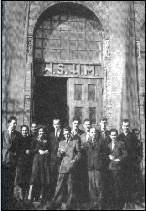 In the programme of the studies, selected issues of maritime transport and trading were included alongside legal and general economic subjects. The newly created school had, at the beginning, the status of a higher school not controlled by the state.
In the programme of the studies, selected issues of maritime transport and trading were included alongside legal and general economic subjects. The newly created school had, at the beginning, the status of a higher school not controlled by the state.
It was not until the formal creation of the Higher School of Maritime Trade in Gdynia on 17 August 1946 and subsequent efforts that the Higher School of Maritime Trade was put under state control on the ground of the decree of the minister of education from October 1946. That created firm legal, organizational and financial basis for incorporating the school into the all-state system of higher education in Poland.
The didactic activity of the Higher School of Maritime Trade began on 21 November 1945. The interest in the school was great, what is testified by the fact that 600 candidates applied for the 1945/1946 academic year. Out of these six hundred 312 were selected and finally accepted - 210 candidates for the first year of studies, 90 for the second and12 for the third – exclusively from the group who previously studied at the Maritime Institute at the Secret University of Western Lands.
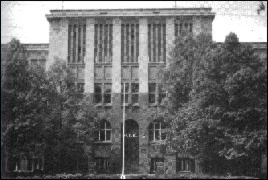 The decision of changing the name of the school into the Higher School of Economics in Sopot, formally sanctioned by the decree of the cabinet No 348 from 3 May 1952, was not given approval by the majority of staff and students. It was the original name which more than often appealed to the youth from all the parts of Poland. It is impossible to separate the Higher School of Economics from the Higher School of the Maritime Trade. It was, in fact, the continuation – in the changing post-war social, economic and political realities of the country – of the same idea of education and research that would suit the needs of the Polish maritime economy and the coastal region.
The decision of changing the name of the school into the Higher School of Economics in Sopot, formally sanctioned by the decree of the cabinet No 348 from 3 May 1952, was not given approval by the majority of staff and students. It was the original name which more than often appealed to the youth from all the parts of Poland. It is impossible to separate the Higher School of Economics from the Higher School of the Maritime Trade. It was, in fact, the continuation – in the changing post-war social, economic and political realities of the country – of the same idea of education and research that would suit the needs of the Polish maritime economy and the coastal region.
On 20 March 1970 the Cabinet of the People’s Republic of Poland voted to create University of Gdansk. It was formed by a merger of the Higher School of Economics in Sopot with the Higher School of Pedagogics in Wrzeszcz. Two Gdansk Colleges of Education - in Wrzeszcz and in Oliwa – were also incorporated into the university. The students of the hitherto existing schools became university students. The establishing of University of Gdansk helped to lessen the gap which divided Gdansk from other academic centres. The way in which this university was established is characteristic.
The participants of the didactic - programmatic conference on the external trade, Sopot 1979. | Solemn conferment of a doctor’s degree, academic year 1979/1980 | A meeting after a conferment |
In April 1970 a decree of the Minister of Education and Higher Education appeared which described the organization of the newly created university. It consisted of six faculties:
- Faculty of the Humanities
- Faculty of Law and Administration
- Faculty of Mathematics, Physics and Chemistry
- Faculty of Biology and Geography
- Faculty of the Economics of Production
- Faculty of the Economics of Transportation
On 1 October 1993 both Faculties of the Economics changed their names: the Faculty of the Economics of Production into the Faculty of Management, and the Faculty of the Economics of Transportation into the Faculty of Economics. It was changed on the strength of a decision of the Senate of the University from 27 May 1993; the changes occurred also in the system of institutes and chairs, which looked this way in the Faculty of Economics in 1996:
Institute of International Business:
- Division of International Economics
- Division of International Transport and Forwarding
- Division of Economics and Organisation of Foreign Trade
- Division of International Currency Relations
- Division of Marketing
Institute of Maritime Transport and Seaborne Trade:
- Division of Maritime Transportation Market and Maritime Policy
- Division of Seaborne Trade
- Division of Economics of Enterprise and Marketing
- Division of Information Systems and Logistics
Chairs:
- Chair of Microeconomics
- Chair of Macroeconomics
- Chair of Economic Policy
- Chair of Jean Monet
- EU Research Centre
- Chair of Transportation Market
- Chair of Transportation Policy
- Chair of Logistics
- Chair of Economics and Management of Transportation Companies
- Chair of Comparative Analysis of Transportation Systems

The Faculty of Economics is an academic centre with full academic rights, highly rated by employers in Pomerania region.
Next years brought many changes in the organizational structure of the Faculty of Economics, which resulted from the development of scientific staff, conducted scientific research and broadening the didactic programmes. In 1993, the name of the Institute of Maritime Economics of Transport was changed to the Institute of Maritime Transport and Seaborne Trade, which consists of three departments: Department of Seaborne Trade, Department of Global Economy and Department of Electronic Economy. In 2001 Jean Monnet Chair, headed by prof. dr hab. Anna Zielińska-Głębocka received a new name - Economics of European Integration Chair. The Department of International Monetary Relations established in 1986 by prof. dr hab. Edmund Pietrzak changed its name to the Department of International Financial Markets in 2013 (in the years 2008 – 2017 it was conducted by prof. dr hab. Danuta Marciniak-Neider). In 2017 the Chair of Comparative Studies and Transport Systems (headed by Prof. Jan Burnewicz until 2016) and Prof. Monika Bąk (since 2017) changed its name to the Chair of Transport Economics.
Today's structure of the Faculty of Economics consists of:
- Institute of International Business
Department of Economics and Organization of International Trade
Marketing Department
Department of International Economic Relations
Department of International Financial Markets
Department of International Transport and Forwarding - Institute of Maritime Transport and Seaborne Trade
Department of Seaborne Trade
Department of Global Economy
Department of Electronic Economy - Chairs of Transportation and Logistics
Chair of Transport Economics
Chair of Economics and Management of Transportation Companies
Chair of Logistics
Transportation Policy Chair
Chair of Transportation Market - Economics of European Integration Chair
- Macroeconomics Chair
- Microeconomics Chair
- Chair of Economic Policy
- Research Centre on European Integration
Further significant organizational changes at the University of Gdańsk, including the Faculty of Economics, were a consequence of the adoption of the new Act of 20 July 2018, Law on Higher Education and Science. The consequences of these changes are set out in the new Statute of the University of Gdańsk, which entered into force at the beginning of the 2019/2020 academic year.
On September 30, 2019, the Faculty Council was dissolved and its powers were transferred to two new bodies. Tasks related to the awarding of degrees and titles and evaluation have been delegated to the Discipline Councils.
Research and teaching staff of the Faculty of Economics co-create the Discipline Council for economics and finance (for which administrative service is provided by the Faculty of Economics) and the Discipline Council for management and quality studies (for which administrative service is provided by the Faculty of Management). The Dean's Council, which is an advisory body to the Dean of the Faculty of Economics, was also appointed.
Further important changes resulting from the new UG Statute concerned the organization of the organizational structure. At the Faculty of Economics, all existing units (institutes, centers, chairs) have been transformed into departments. The Institute of Maritime Transport and Trade has been transformed into the Department of Maritime Transport and Trade, the European Integration Research Center into the Department of European Integration Research. Two units were established on the basis of the Institute of International Business: the Department of International Business and the Department of Sustainable Market Processes. The Chair of Economics of European Integration has changed its name to the Department of International Economics and Economic Development.
As a result of the merger of the Department of European Integration Research and the Department of Transport Policy, the Department of Transport Policy and Economic Integration was established on September 1, 2020.
The structure of the Faculty of Economics, effective since September 1, 2020, is as follows:
- Department of International Business
Division of International Economic Relations
Division of International Financial Markets
Division of International Trade
Division of Marketing Strategies - Department of International Economics and Economic Development
- Department of Transport Economics
- Department of Economics and Management of Transport Companies
- Department of Logistics
- Department of Macroeconomics
- Department of Microeconomics
- Department of Economic Policy
- Department of Transport Policy and Economic Integration
- Department of Transport Market
- Department of Maritime Transport and Seaborne Trade
Division of Electronic Economy
Division of Global Economy
Division of Maritime Economy - Department of Sustainable Market Processes








